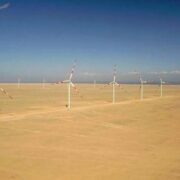“Going forward, growth will remain soft despite dropping wholesale energy prices, as monetary policy tightening dents investment and still-present inflationary pressures constrain consumption,” they said.
Separately, economists polled by Reuters expect quarterly growth to rebound by a modest 0.2% in each of the remaining three quarters of this year and tip the European Central Bank (ECB) to hike by a further 25 basis points (bps) at both its June and July meetings in its effort to counter stubborn inflation.
That would take the ECB’s deposit rate up to 3.75% in an unprecedented tightening of 425 bps since the bank lifted rates out of negative territory last July. Eurostat said eurozone GDP was 1% up in the first quarter from a year earlier, lower than a flash estimate of growth at 1.3% published on May 16.
Economists had forecast a 1.2% yearly expansion and zero growth on the quarter. The revision was principally due to a second estimate from Germany’s statistics office showing that the eurozone’s largest economy was in recession in early 2023.
The contraction in Ireland’s economy widened to 4.6% from a preliminary estimate of 2.7%, although this negative was due to the impact of large multinationals on growth there. A recession had been expected towards the end of last year as the eurozone wrestled with high energy and food prices and as a post-pandemic spending boom faded.
Initial estimates had suggested the region had avoided this. Along with Germany and Ireland, GDP also declined quarter on quarter in Greece, Lithuania, Malta and the Netherlands.
Eurostat said that household spending stripped 0.1 percentage point, public expenditure 0.3 points and inventory changes 0.4 points from quarterly GDP.
Gross fixed capital formation added 0.1 point and net trade a further 0.7 points as imports declined. Conversely, employment growth accelerated at the start of 2023, rising to 0.6% in the first quarter from 0.3% in the fourth quarter of 2022, in line with earlier estimates. That was 1.6% up year on year.
On a quarterly basis, employment grew in every country except Greece, Lithuania and Slovakia.
Reuters











Comments